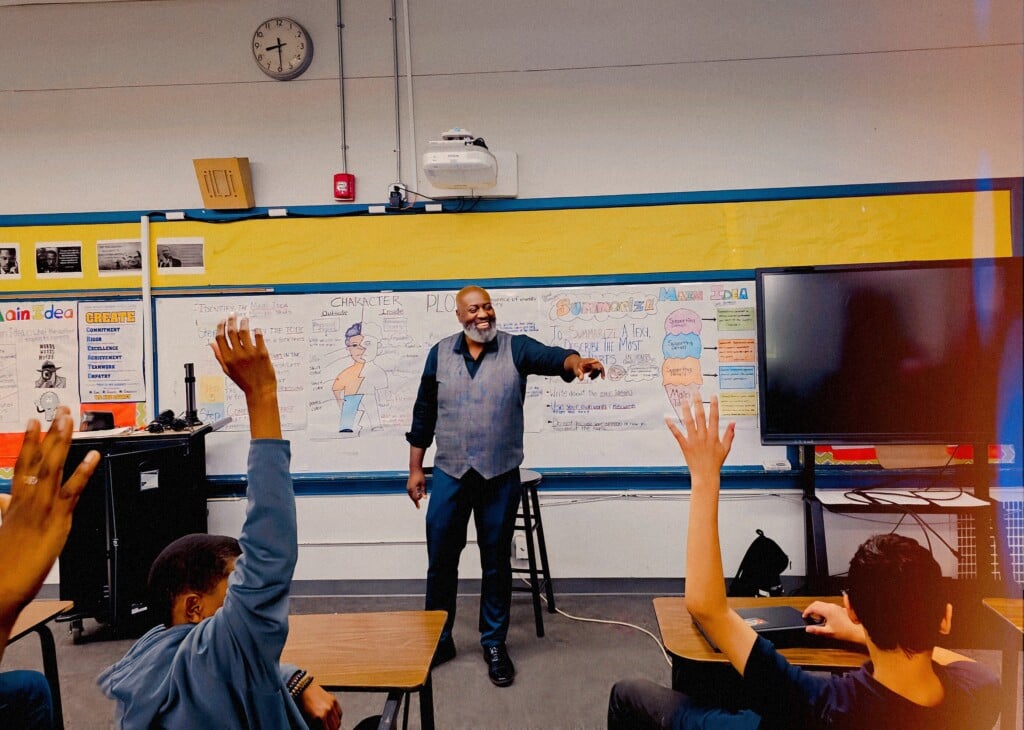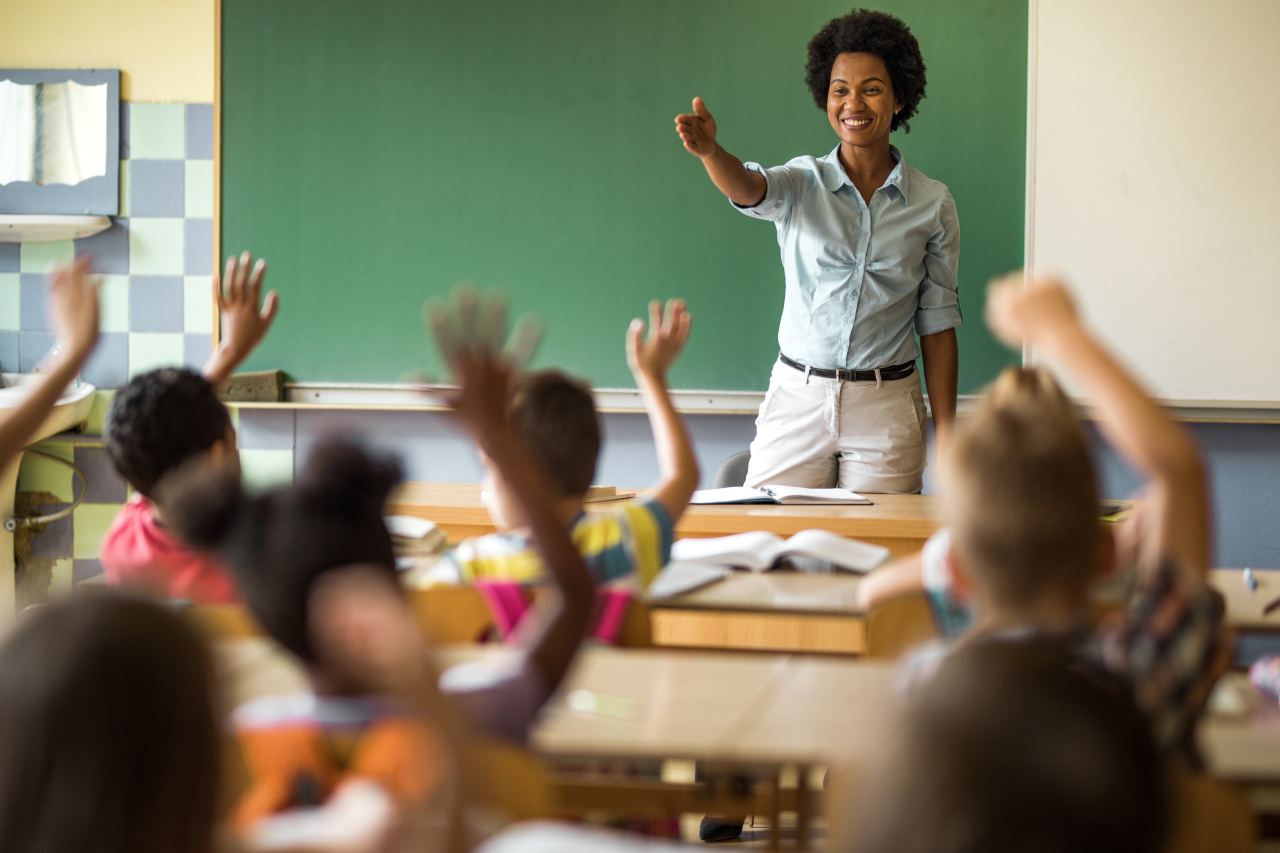Improve Your Child’s Performance with Primary Science Tuition Singapore
Improve Your Child’s Performance with Primary Science Tuition Singapore
Blog Article
Exploring the Various Training Techniques in Primary Science Education And Learning Today
Inquiry-based understanding, hands-on experiments, and the combination of modern technology are redefining exactly how instructors involve young minds. In addition, joint strategies and distinguished guideline are being used to cater to the diverse requirements of students, improving both interaction and understanding.
Inquiry-Based Knowing
Inquiry-Based Discovering (IBL) is a pedagogical strategy that urges students to discover clinical concepts via doubting, examination, and hands-on testing. This technique stresses the function of pupils as energetic participants in their learning, promoting critical reasoning and problem-solving abilities. By involving with real-world concerns, trainees become interested and inspired, which boosts their understanding of scientific principles.
In IBL, teachers function as facilitators, directing trainees as they browse their queries as opposed to providing info directly. This student-centered strategy enables distinction, suiting different finding out rates and designs. Students create abilities in creating hypotheses, making experiments, and evaluating data, which are vital for scientific literacy.
Additionally, IBL promotes collaboration among trainees, encouraging them to share concepts and findings. This collective questions promotes social skills and a sense of community within the class. In addition, the process of inquiry urges resilience, as pupils learn to accept failing as a tipping stone toward understanding.
Hands-On Experiments
Hands-on experiments are a crucial component of reliable scientific research education and learning, complementing the principles of inquiry-based learning. These experiments allow pupils to engage straight with clinical principles, promoting a deeper understanding via experiential understanding. By manipulating materials and observing outcomes, young students can understand abstract concepts in tangible methods.
Such activities promote essential thinking and analytic skills, as pupils assume end results, conduct experiments, and examine results. This procedure motivates them to ask questions, fine-tune their understanding, and create a clinical state of mind. Hands-on experiments can be tailored to varied discovering styles, guaranteeing that all trainees have the chance to engage meaningfully with the material.
Furthermore, hands-on experiments frequently motivate partnership amongst peers, advertising synergy and interaction abilities. Working in teams enables trainees to share concepts, talk about findings, and gain from one another, which improves their overall educational experience.
Integrating hands-on experiments into the main scientific research curriculum not just enriches the discovering setting but additionally grows a long-lasting interest in science. By proactively joining their education and learning, students are most likely to establish an enthusiasm for clinical questions that prolongs beyond the classroom.

Technology Combination
Incorporating modern technology right into key science education and learning has actually become increasingly important in promoting trainee interaction and improving learning results. Making use of electronic tools, such as interactive simulations, digital labs, and instructional software application, provides pupils with opportunities to discover clinical concepts in ingenious methods. These sources assist in a much deeper understanding of complicated topics by enabling learners to visualize and control variables that would be unwise in a standard classroom setting.
In addition, innovation assimilation urges individualized discovering experiences. Trainees can proceed at their own pace, revisiting tough concepts with multimedia resources, which accommodate various knowing styles. This flexibility not only sustains individual growth yet likewise grows a feeling of freedom in learners.
In addition, innovation acts as a bridge to real-world scientific research, linking students with current research and expert contributions. Accessibility to scientific journals and on the internet data sources broadens pupils' viewpoints on clinical questions and cultivates crucial thinking skills.
Collaborative Learning
Collaborative learning plays an important role in key scientific research click here for more info education and learning by promoting team effort and communication abilities amongst pupils. This technique encourages students to collaborate, share understanding, and engage in analytic, which improves their understanding of scientific ideas. By joining group tasks, pupils discover to express their ideas, listen to varied point of views, and negotiate options, all of which are important skills in both real-world and academic contexts.

Study shows that collective learning can result in boosted inspiration and engagement in scientific research topics, as trainees find pleasure in shared experiences (primary science tuition Singapore). Additionally, this method prepares pupils for future collaborative endeavors, outfitting them with the abilities necessary for effective teamwork in college and expert atmospheres. Ultimately, embracing collaborative knowing in main scientific research education can substantially enhance the knowing experience and advertise a deeper understanding of scientific inquiry
Distinguished Direction

Distinguished instruction can manifest in different means, such as differing the web content, processes, or items of discovering. Educators might make use of tiered projects that offer varying levels of complexity, enabling pupils to work at their corresponding readiness degrees. In addition, adaptable grouping methods can help with collaboration among students with different capabilities, cultivating peer learning.
Assessment plays a vital role in this approach, as it notifies instruction and helps educators recognize each trainee's unique requirements. Developmental assessments, such as tests look what i found and monitorings, can lead teachers in adjusting their approaches to enhance learning end results. primary science tuition Singapore. Inevitably, by implementing distinguished instruction in key science education and learning, instructors can cultivate a more efficient and equitable understanding environment, encouraging all pupils to reach their full capacity in comprehending scientific phenomena
Conclusion
In recap, the varied training techniques in main scientific research education, including inquiry-based understanding, hands-on experiments, modern technology combination, collaborative understanding, and distinguished direction, collectively add to an extra review effective knowing atmosphere. These approaches advertise essential reasoning, problem-solving abilities, and a deeper comprehension of clinical ideas. By applying these strategies, educators can develop encouraging and appealing classrooms that deal with the different requirements of pupils, eventually promoting a lifelong rate of interest in science and enhancing academic achievement.
Inquiry-Based Knowing (IBL) is a pedagogical method that motivates pupils to discover clinical principles through wondering about, examination, and hands-on experimentation.Collaborative understanding plays a vital role in primary science education by promoting teamwork and communication abilities among pupils.Research study suggests that joint understanding can lead to increased inspiration and involvement in scientific research topics, as students locate pleasure in common experiences.In cultivating an inclusive knowing setting, separated guideline emerges as a crucial approach to suit the diverse requirements and abilities of pupils in primary science education and learning. Ultimately, by implementing separated guideline in main scientific research education and learning, teachers can grow a more effective and fair learning atmosphere, equipping all students to reach their full possibility in recognizing scientific phenomena.
Report this page